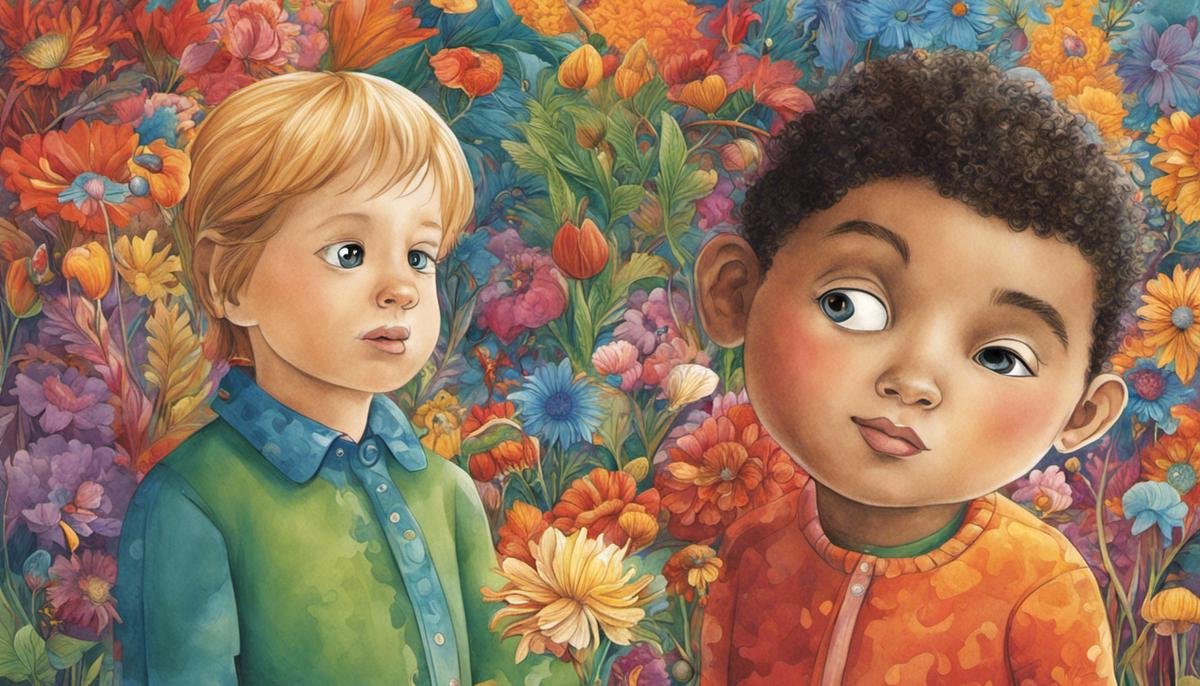
In the diverse fabric of human experience, Autism Spectrum Disorder (ASD) stands out with its unique interplay of challenges and capabilities. Often surrounded by misconceptions, the true profile of autism is far more intricate and fascinating, with every affected individual showcasing a distinctive set of strengths and capacities. As we strive to understand ASD better, we delve into its complexities and explore the remarkable abilities that many autistic individuals inherently possess. From prodigious mathematical talents to exquisite artistic abilities, the onset of exceptional talents in autistic individuals unravels a largely untold story. This intricate journey will also guide us through practical strategies to nurture such skills, and how they can be converted into rewarding opportunities that foster personal satisfaction and societal success for autistic individuals.
Understanding Autism
Understanding Autism: Its Impact on Abilities and Daily Living
Autism, also known as Autism Spectrum Disorder (ASD), is a complex, lifelong developmental disorder primarily affecting a person’s ability to communicate and interact with others. Despite the prevalent misconceptions, every case is different—some individuals may require minimal support, while others may need substantial assistance throughout their lives. This article breaks down the basics of autism and sheds light on how it affects an individual’s abilities.
At its core, autism is a neurological variance that is typically identified in early childhood, often around the age of two. It’s called a “spectrum disorder” because the symptoms and their severity can vary significantly from one person to the next. This diversity has led to the saying: “If you’ve met one person with autism, you’ve met one person with autism.”
Autism primarily impacts a person’s social interaction and communication skills. Some individuals might find it challenging to participate in regular conversations, understanding non-verbal cues, or developing and maintaining social relationships. Common physical symptoms might include repetitive behavior, fixated interests, hypersensitivity to sensory stimuli, and difficulty adapting to change.
It’s important to remember that although these behaviors might appear idiosyncratic to others, they are often owing to how an individual with autism processes information and makes sense of the world.
On that note, it’s a misconception to think of autism purely in terms of deficits or disabilities—many individuals with autism exhibit remarkable strengths and abilities. An individual with autism may have a unique aptitude for attention to detail, memory, or visual skills. This aptitude may manifest in certain fields such as art, mathematics, or music where detailed focus is a plus. The key here is to embrace these strengths and provide the necessary support to help them flourish.
The impact of autism on an individual’s life is largely dependent on the severity of symptoms, the timing of the diagnosis, and the early interventions taken. Research strongly suggests that early intervention during toddlerhood can significantly improve a child’s skills for life.
Equipping ourselves with proper understanding is the first step towards creating an inclusive community where people with autism feel accepted, not just accommodated. It enhances our ability to extend compassion, patience, and support, and ultimately empower those living with autism to live their best possible lives.
Without any doubt, autism is a different way of experiencing humanity. It’s not something to ‘cure’ or be ignored, but a diversity to be understood and respected. Remember, the goal isn’t to change the person with autism, but to create a world that values, includes, and celebrates neurodiversity in all its vibrant colors.

Development of Extraordinary Skills and Interests
Unveiling Autism’s Silver Lining: Unleashing Unique Skills and Talents
In the tapestry of human diversity, every thread counts, and autism is one thread that adds a valuable splash of color. Despite the challenges it poses, autism often acts as a catalyst, fueling the development of unique talents in those it touches. Their abilities, quite often, tread paths less explored, shedding a new light on how we perceive and interpret the world around us.
The richness of autism’s landscape becomes apparent when we delve into the realm of special abilities. Often, individuals with autism are endowed with exceptional skill sets, ranging from art to math, music, memory, and beyond. These skills, often referred to as savant skills, are well-documented and add a unique flavor to the autistic experience.
However, the story doesn’t end with savants. Autism, with its array of cognitive components, often fosters diverse abilities in nonsavant fields too. For instance, the well-regarded literal-mindedness of individuals with autism can transform them into exceptional computer programmers, musicians or mathematicians, where precision is paramount. Similarly, the keen eye for detail often associated with autism serves as an asset in paths requiring meticulous observation, such as art, science, or craftsmanship.
Moreover, the visual thinking so common in individuals with autism—thinking in images instead of words—can lend itself to moments of genius in fields such as architecture, graphic designing, or puzzle solving. And let’s not forget their ability to stick with routines or repetitive tasks, a characteristic that often translates into phenomenal discipline and rigour in their chosen field.
However, channeling these talents requires a nurturing environment that recognizes, and allows these skills to flourish. As parents, teachers, or caregivers, it’s essential to foster a setting that provides the necessary stimulation for these skills to bloom. For instance, engaging them in activities that align with their natural interests can set the stepping stones towards honing their innate talents.
It’s also important to provide the right balance of challenges and support. While running away from challenges could limit their potential, pushing too hard may lead to stress and burnout. Instead, offering scaffolding support—guiding them when necessary and gradually withdrawing help as they become more proficient—can ensure that they’re not too overwhelmed or too under challenged.
Remember, every child with autism is unique, with a distinct set of abilities and interests. As the metaphorical proverb goes, they cannot be expected to climb the tree if they were born to swim like fish. We need to stop confining them within societal constructs of ‘normal’ and ‘average,’ and allow them to reach their full potential in their own, unique way.
In conclusion, the beauty of autism lies in its complexity. Along with its challenges, autism brings with it a treasure trove of possibilities, waiting to be discovered and nurtured. By focusing on abilities, not only disabilities, we can write a new narrative, one that embraces the rainbow of skills that autism brings to life’s canvas.

Practical Ways to Nurture Skills in Autistic Children
Identifying and Nurturing the Unique Skills in Children with Autism
With every child comes a unique mix of abilities and talents that are waiting to be explored and cultivated. This is especially true for kids with autism. Despite the challenges they may face, they possess a breadth of skills and talents that set them apart in the most remarkable ways. It is critical that as a community, we learn how to encourage and nourish these abilities in our children.
To begin with, it is essential to identify the abilities of children with autism. One effective way to do this is by observing them during their playtime. Look out for patterns or repeated activities that might indicate a special talent or skill. Whether it’s aligning objects precisely, recognizing intricate details, or an inclination towards music or art, these behaviors are often indicators of their unique strengths.
Creating a supportive and understanding environment is another requisite in nourishing these capacities. Acceptance plays a critical role here. By recognizing and embracing the uniqueness of your child’s abilities, you foster an environment where their skills can grow and develop freely. Positive reinforcement is also necessary to help them build self-esteem, which can further encourage them to pursue their talents.
Apart from this, providing appropriate resources that support their interests can greatly benefit their development. This might include art supplies for the budding artist, plenty of books for an aspiring young reader, or coding classes for those showing a knack for computers. Also, expose them to a wide variety of activities to broaden their horizons and help discover new areas of interest.
Additionally, structured and routine activities work well in honing the skills of children with autism. Consistent practice can help develop focus and mastery in their areas of interest. Remember, success in any field requires practice, and these routine activities can offer a sense of stability and predictability that is comforting for children with autism.
While we aim to nourish their talents, it’s also essential not to overlook the importance of social skills. Encourage and assist them in making friends and building relationships. Poor social interaction is a common trait among those with autism, and though it can be challenging, building these skills can significantly improve their quality of life in the long run.
Lastly, celebrate your child’s accomplishments, big or small. Everyone thrives on recognition and praise, and children with autism are no exception. Celebrate the uniqueness of their journey and the individuality that shapes them.
At the end of the day, every child with autism, like any other child, is unique and gifted in their own exceptional ways. By identifying, nurturing, and celebrating their individual skills and talents, we can help them build a brighter and more confident future. After all, ours is a shared journey to unlock each child’s potential, and there can be no more worthy endeavor than fostering a nurturing environment where everyone can thrive. Remember, children with autism aren’t born to fit in but to show the world how lovely ‘different’ can be.

Transforming Talents into Opportunities
Unleashing Their Potential: Transforming Unique Talents into Meaningful Opportunities
Watching children grow and nurture their talents is one of the absolute joys of parenting, and this holds true for all children – autism or not. Each child is a bundle of potential and resilience, waiting to unfurl their wings. Especially when it comes to autism, fostering these talents is not just an opportunity to strengthen abilities, but also an avenue to foster self-worth, positive self-perception, and enhance their life experience!
Understanding Your Autistic Child
Autism paints a unique picture for each individual. Part of nurturing this talent involves understanding and respecting it. Observing your child engage in activities they love or repeatedly practice a certain hobby could potentially illuminate a hidden talent. It’s about appreciating what they offer, even when it’s different from what you might typically expect from other children their age.
Create a Nurturing Ecosystem
An environment of love, support, and acceptance goes a long way toward helping a child with autism spread their wings. This includes both the physical space – providing pleasant sensorial experiences (considering their specific sensitivities) – and emotional space filled with understanding, patience, and affirmation. Be their cheerleader, authentically appreciating their abilities and achievements – big or small.
Resource Replenishment
Harness all the resources at your disposal. Consider skill development programmes, therapy sessions, and tutoring that cater to children on the spectrum. The tech-savvy world provides numerous online platforms and tools that can effectively engage children on the spectrum and hone their skills. An advantage of today’s digital era is that it’s never been easier to discover and access resources to support your child in blossoming into their best selves.
Guide with Exposure
Do not shy away from exposing children with autism to multiple avenues – be it music, arts, sports, or coding. You may be surprised where your child shines! Structured, routine experiences, done right, can ease them into trying new things. Creating a balance between routine and novelty is key.
Role of Social Skills
Aside from honing their own abilities, it’s equally important to empower your child to build relationships and socialize. Interactions with others can uncover skills and thought processes that might not be apparent during solitary activities, leading to a more rounded growth experience.
Embracing the Individuality in Every Child
Remember, comparison might be the thief of joy. As parents, it’s crucial to recognize and respect the fact that every child, regardless of where they lie on the spectrum, is an individual with distinct talents and potential. Our role should be to provide the tools and environment that allow them to thrive.
Meaningful Opportunities Await
Turning talents into meaningful opportunities does not strictly refer to resulting in career paths or financial gains. It revolves around boosting their self-esteem, enhancing their life experiences, fostering resilience, and ultimately, uplifting the quality of their lives. It’s time to highlight and nurture the rich strengths in people with autism, acknowledging them as valuable contributors to the tapestry of human experiences. Let’s journey together – transforming potential into possibilities.

Photo by planeteelevene on Unsplash
As we have discovered throughout this exploration, autism, with all its complexities, is not merely a condition to manage. It is, in many cases, accompanied by exceptional abilities that can be nurtured to create life-changing opportunities. From the comfort of their homes to the larger expanse of society, we’ve seen how their unique talents in subjects such as art, mathematics or absorbing large amounts of data have led to fulfilling independence, careers or hobbies. With the right encouragement, support, and understanding, we can help channel their extraordinary capabilities, ensuring that every child with autism achieves their fullest potential and finds their unique place in the world.





